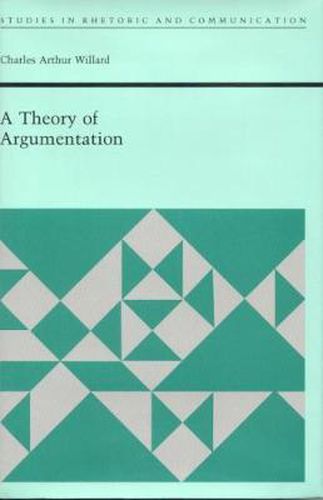Readings Newsletter
Become a Readings Member to make your shopping experience even easier.
Sign in or sign up for free!
You’re not far away from qualifying for FREE standard shipping within Australia
You’ve qualified for FREE standard shipping within Australia
The cart is loading…






Normal0falsefalsefalseMicrosoftInternetExplorer4Establishes a theoretical context for, and to elaborate the implications of, the claim that argument is a form of interaction in which two or more people maintain what they construe to be incompatible positions
The thesis of this book is that argument is not a kind of logic but a kind of communication–conversation based on disagreement. Claims about the epistemic and political effects of argument get their authority not from logic but from their fit with the facts about how communication works. A Theory of Communication thus offers a picture of communication–distilled from elements of symbolic interactionism, personal construct theory, constructivism, and Barbara O'Keefe’s provocative thinking about logics of message design. The picture of argument that emerges from this tapestry is startling, for it forces revisions in thinking about knowledge, rationality, freedom, fallacies, and the structure and content of the argumentation discipline.
$9.00 standard shipping within Australia
FREE standard shipping within Australia for orders over $100.00
Express & International shipping calculated at checkout
Normal0falsefalsefalseMicrosoftInternetExplorer4Establishes a theoretical context for, and to elaborate the implications of, the claim that argument is a form of interaction in which two or more people maintain what they construe to be incompatible positions
The thesis of this book is that argument is not a kind of logic but a kind of communication–conversation based on disagreement. Claims about the epistemic and political effects of argument get their authority not from logic but from their fit with the facts about how communication works. A Theory of Communication thus offers a picture of communication–distilled from elements of symbolic interactionism, personal construct theory, constructivism, and Barbara O'Keefe’s provocative thinking about logics of message design. The picture of argument that emerges from this tapestry is startling, for it forces revisions in thinking about knowledge, rationality, freedom, fallacies, and the structure and content of the argumentation discipline.